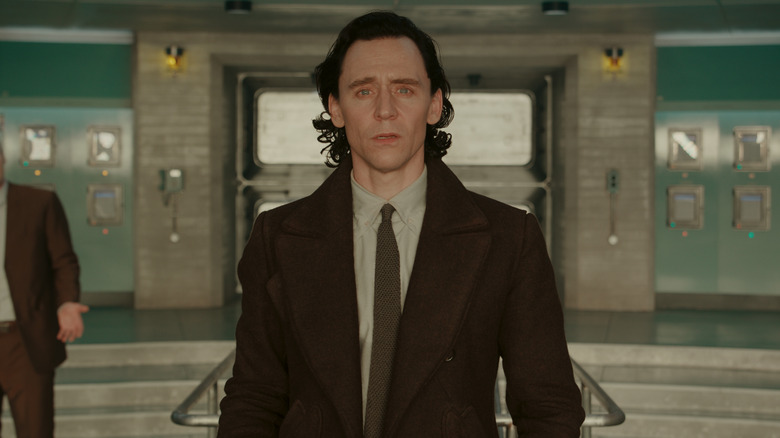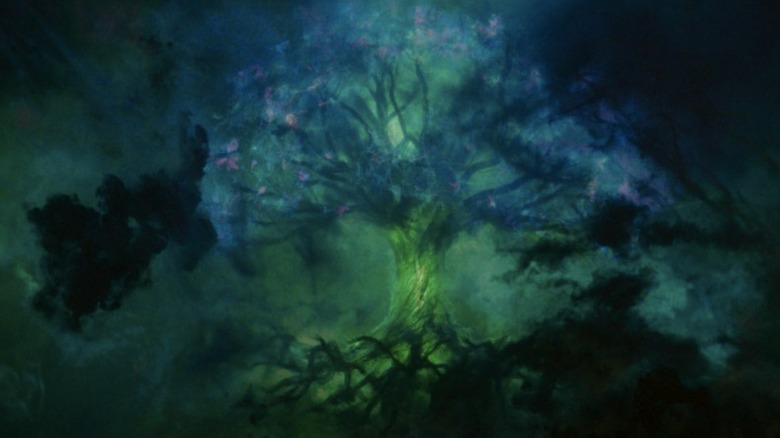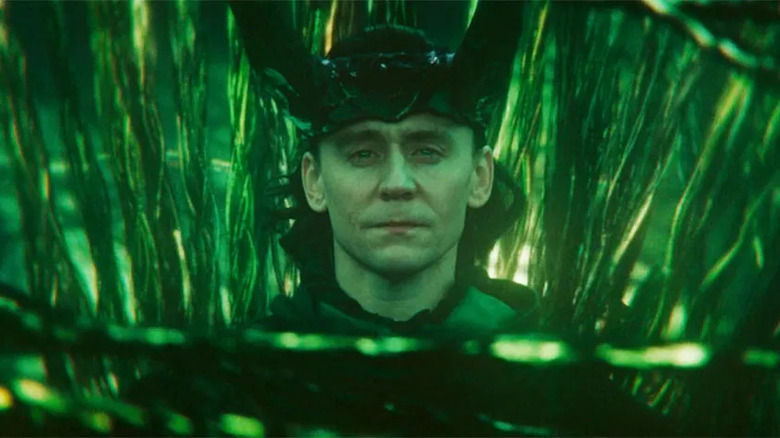Marvel's Loki Season 2 Ending Explained: Is This Truly Glorious Purpose?
"Loki" season 2 ended as one of the greatest stories Marvel Studios has ever told. What started as a fun and weird little side story with the God of Mischief learning to care about others ended with him becoming one of the biggest heroes in the Marvel Cinematic Universe.
The season mostly dealt with the fallout of Sylvie killing He Who Remains, and the threat to all timeline branches as the Temporal Loom reached critical mass. It was a hell of a dark season, one that had enough deaths to make Thanos blush.
Just like the first episode of the show, the finale is titled "Glorious Purpose," and it is fitting. Both episodes deal with Loki struggling to find a purpose after having lost so much for so long, but this episode had him take control of his own narrative in a rather satisfying way.
The finale starts with Loki basically becoming the God of Time. Now able to control his time slipping powers, he goes back to the TVA right before Victor Timely dies trying to fix the Loom. In a hilarious scene echoing the "Dormammu, I've come to bargain" scene from "Doctor Strange," Loki repeats the same scene over and over again as he tries to prevent everyone from dying and the Loom from exploding. He even spends literal centuries time-looping, so O.B. can teach Loki all he knows about timelines and quantum physics.
While the scene is very funny, there is a feeling of despair that differentiates it from "Doctor Strange" and gets at the heart of Loki's character arc. There is no mischief in his heart during this scene, no snarky come backs, no jokes. Loki is as emotionally raw as we've ever seen him.
Glorious purpose
Except, it is all pointless. We learn that there is no way to account for the endless expansion of the branches, and the Temporal Loom was never going to be able to keep it all together. It was always destined to fail. What's worse, the Loom was always just a failsafe device meant only to preserve the Sacred Timeline in a moment like this — not to save the other branches. Without the Loom, there would be an endless war on every branch and nothing could survive. The only way to make sure at least one timeline survives is for Loki to go back and kill Sylvie before she kills He Who Remains at the end of season 1.
Rather than keep trying to save the timelines by repairing the loom or kill the person he loves, Loki uses his status as a god with superpowers to take the place of Victor Timely and steeps onto the platform himself. He faces the temporal radiation and reaches the Loom, but instead of fixing it, he destroys it. He isn't capable of taking away his friends' free will, or of killing Sylvie, but he can sacrifice himself for the greater good and truly achieve glorious purpose.
The God of mischief grabs all the time branches and opens a tear in the fabric of spacetime that leads to the ruins of He Who Remains' Citadel at the End of Time. There, Loki finally takes what he always wanted, the throne (which turns gold for some season). He turns the dying branches back to life, forming not the linear loom, but Yggdrasil, the tree of life.
The God of Stories
Loki seems to be trapped here forever, doomed to be the new He Who Remains. It is a moment of triumph and resignation, a moment of true heroism from Loki. As Mobius tells him earlier during a brief trip back to the first episode, "Most purpose is more burden than glory," and that becomes true for Loki. He is unable to leave his solitary palace.
And yet, he fulfilled his purpose. His arc is done. Loki became more than a hero, he became a god. Not the God of Mischief, mind you, but the God of Stories (as he is now in the comics). Loki now holds together the very fabric of all existence in his hands. The branching timelines now co-exist in harmony, rather than be aberrations.
Elsewhere, the epilogue sees the TVA being rebuilt in support of the new tree-like timeline branches, with O.B. writing a new version of the handbook, Miss Minutes reprogrammed so she doesn't betray anyone and try to kill them, and Hunter B-15 as part of the council. Mobius, sadly, leaves the TVA, deciding to experience what they fought to save and traveling to a branched timeline to see the version of himself that has kids. Sylvie shows up too, and reminds him that Loki gave them a chance to live out their lives. As for Renslayer, she doesn't become her comic book villain counterpart yet. But she is stuck in the Void, where she sees Alioth the giant monster in her final moments.
This is the most fitting way the story could end. There's no post-credits scene teasing a return, but a final image of Loki on his throne. He has broken from the traditional fate of this god in Norse mythology, and instead paved his own road, ending in heroism. Glorious purpose, indeed!


